A New Poaching Problem in South Africa
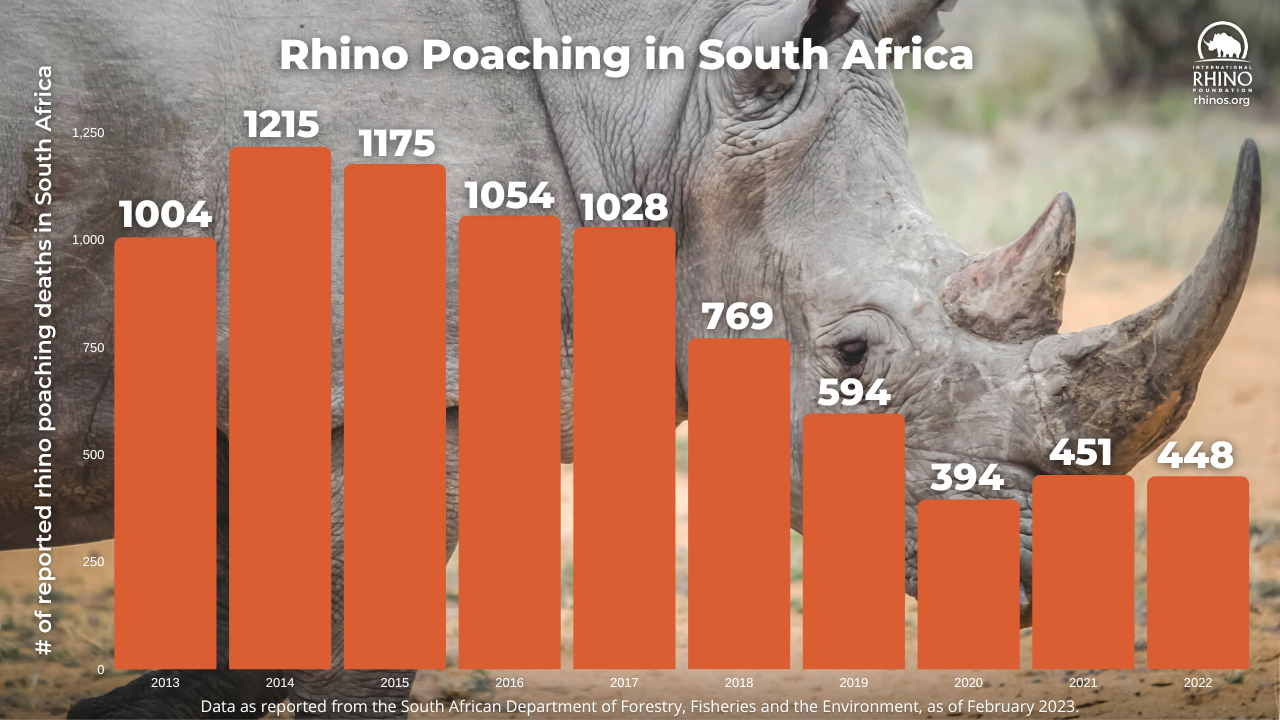
February 27, 2023
Concerns are rising as trends show the poaching threat is moving to other areas inside and outside the country, placing rhinos in peril across southern Africa.
The number of rhinos poached for their horns in South Africa decreased slightly in 2022. A total of 448 rhinos were illegally killed countrywide last year, three fewer than in 2021. However, the figures are still higher than they were the year before when COVID-19 restrictions in South Africa led to a fall in poaching.
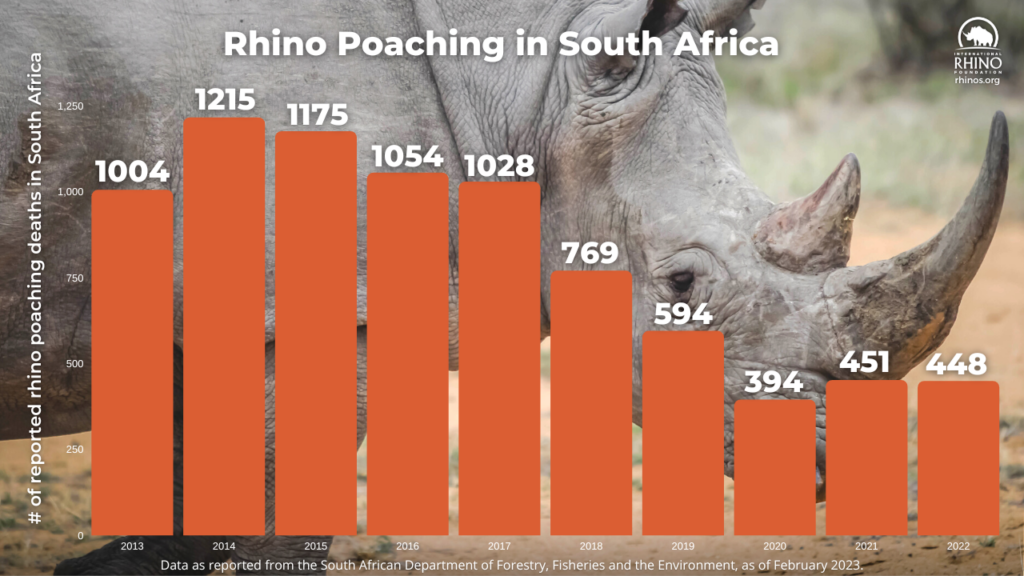
South Africa accounts for about a third of the total black rhino population on the African continent and is also home to the world’s largest population of white rhinos. Currently, 2,056 black rhinos and 12,968 white rhinos are estimated to remain for a total of more than 15,000. Almost 10,000 rhinos have been lost to poaching in South Africa since the start of this crisis in 2007.
In 2022, 124 rhinos were killed in Kruger National Park. No rhinos were poached in any other national park. The number of rhinos poached in Kruger National Park represents a 40% decrease compared with those killed for their horn in 2021.
Besides its large rhino population, a variety of factors has made Kruger National Park a target of poachers since the current poaching crisis began in 2008. Kruger’s expansive size makes it challenging to protect all areas and the high number of staff needed increases the likelihood of internal corruption that may enable poaching. Kruger also shares a border with Mozambique and is surrounded by poor, heavily populated local communities who are targeted by transnational criminal syndicates to do the dirty work needed to keep rhino horn on the black market.
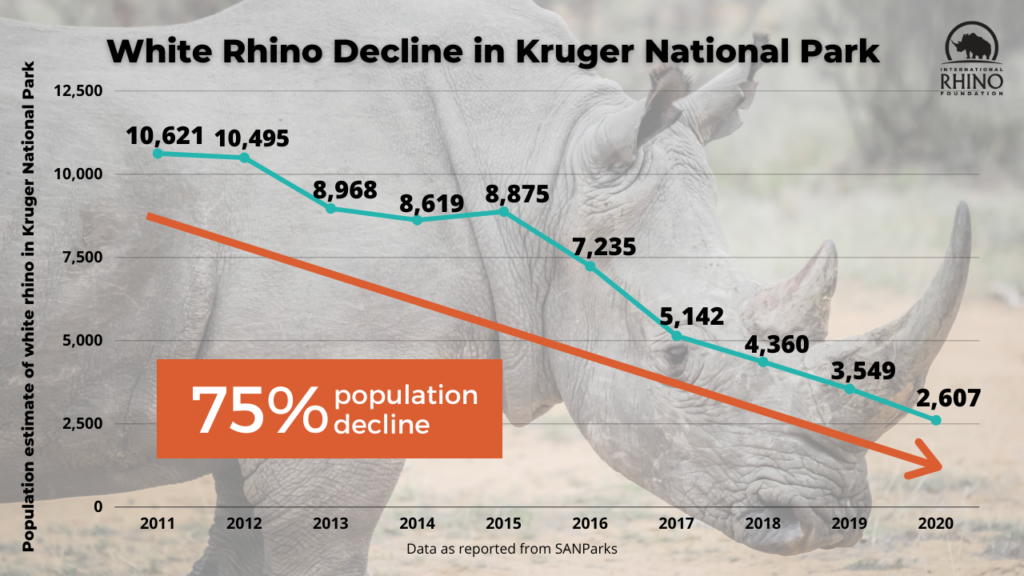
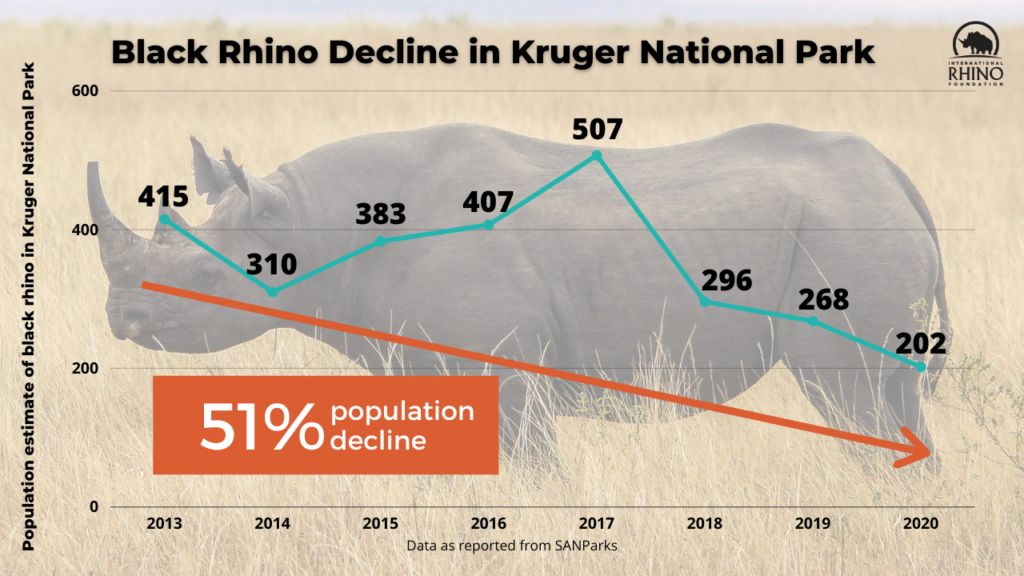
Kruger National Park undertook additional actions to better protect rhinos in 2022. We all must remain vigilant as one year of small declines is not enough to reverse the precipitous decline of both white and black rhinos in the park over the past six years. This must be a continuous multi-year effort for rhino populations to recover.
More recently though, poaching syndicates have increasingly shifted to other state, provincial and private reserves. This could be because of the significant population declines reported for black and white rhinos in Kruger last year. Fewer rhinos makes poaching more difficult. That, combined with ongoing anti-poaching efforts, targeted investigations to address internal corruption and wide-scale dehorning in the Greater Kruger area, has led poachers to shift to hunting in other regions.
Wildlife poaching, including for rhino horn, is controlled globally by large criminal syndicates. Poachers often change their methods in response to law enforcement efforts and in 2022 shifted their operations to other areas of the country. The province of KwaZulu-Natal was impacted hardest, losing 244 rhinos to poaching last year. Of these, 228 were killed in provincial parks and 16 in privately owned reserves. The Hluhluwe iMfolozi Park was specifically targeted.
Private reserves have also felt the poaching pressure. Private rhino owners lost 86 rhinos in total across the country in 2022.
The movement of poaching activities is expected to continue. So far this year, eight rhinos have been poached in the Eastern Cape province of South Africa. This is alarming, as this region has not lost a rhino to poaching since 2019.
Poaching of rhinos is not isolated to one country but rather a regional issue that impacts multiple countries and the rhino population as a whole. Earlier this month, officials in Namibia reported that 87 rhinos were killed by poachers in 2022. This is almost double the 45 rhinos poached in 2021 – and one of Namibia’s highest poaching rates in the last decade.
The rise in poaching across southern Africa indicates that criminal networks have shifted activities across the region where rhinos can be found. Sharing of information and protection resources must be coordinated across borders to reverse these population declines before it is too late.
South Africa reported that 132 arrests were made during 2022 for rhino poaching. A recent focus on money laundering and international cooperation with other law enforcement authorities saw the arrest of 26 rhino horn traffickers and 13 people for money laundering and bribing of rangers.
The arrests are a good first step in the fight against wildlife crime. It is imperative that these suspects are now brought to trial quickly and punitive sentences are secured to ensure they do not go right back to their poaching activities. We are urging the South African government to act decisively and with urgency and increase capacity at all levels to protect rhinos throughout the country.
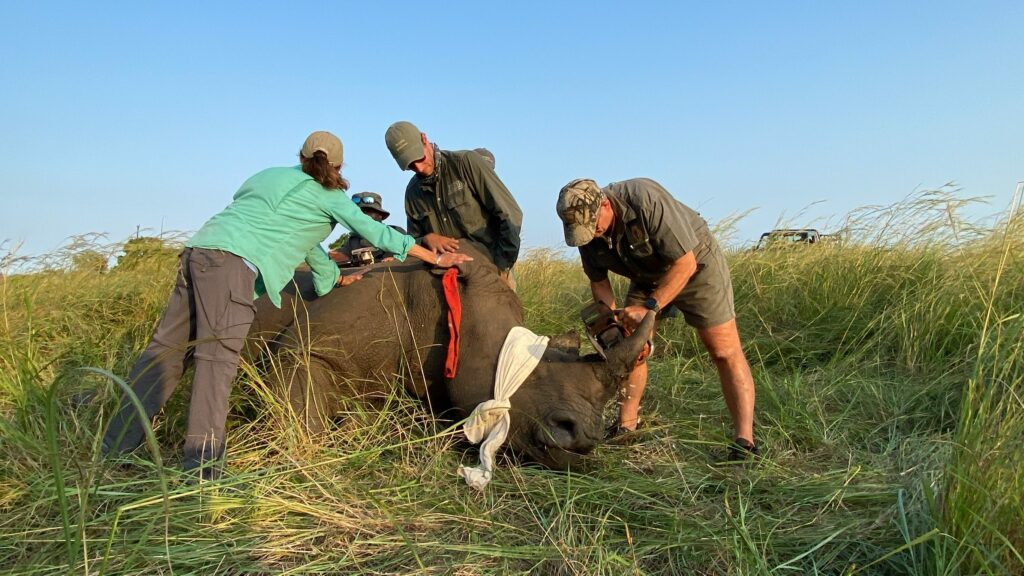
There are fewer than 27,000 rhinos left in the world today, and without collaborative protection and management, the five rhino species are all at risk of extinction. IRF thanks all the individuals, governments and communities holding the front line to protect the planet’s remaining rhinos.
